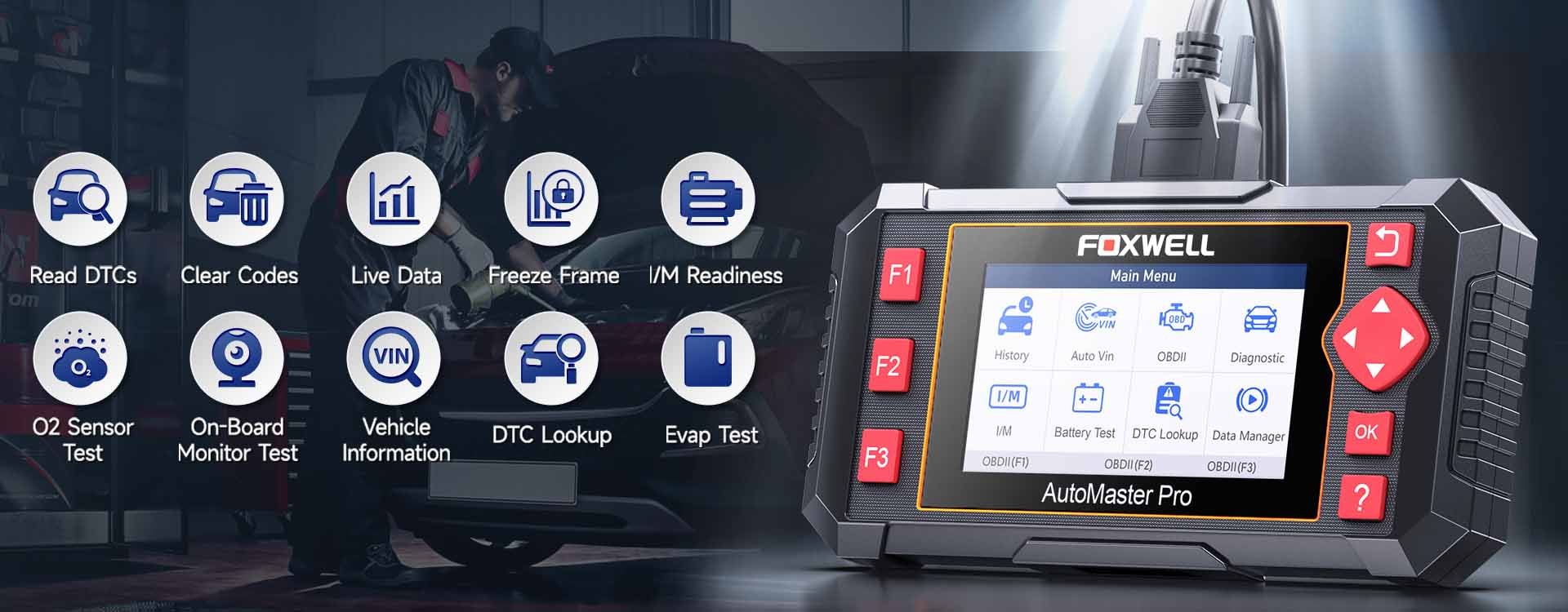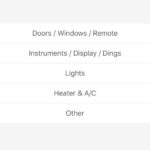As a proud owner of a fuel-efficient hybrid vehicle, you understand the blend of innovation and economy that sets your ride apart. But when that check engine light illuminates on your dashboard, a common question arises: Can I use a standard OBD2 scanner on my hybrid car like I would on a regular gasoline vehicle? The answer is yes, but there’s more to the story when it comes to Hybrid Obd2 diagnostics.
Since the mid-1990s, the On-Board Diagnostics II (OBD2) system has been a crucial tool for mechanics and car enthusiasts alike. It provides a window into your vehicle’s internal systems, helping to identify issues and maintain optimal performance. Toyota hybrids, while OBD2 compliant, present a unique diagnostic landscape due to their complex powertrain, which combines a traditional internal combustion engine (ICE) with an electric motor and a high-voltage battery system.
While a basic OBD2 scanner will indeed work on your Toyota hybrid, it might only scratch the surface of potential issues. To truly understand the health of your hybrid, especially its electric components, you’ll need to delve deeper with more advanced diagnostic techniques. These techniques can access and interpret data from both the gasoline and electric systems simultaneously, offering a comprehensive vehicle health assessment.
Step-by-Step: Using an OBD2 Scanner on Your Toyota Hybrid
Using an OBD2 scanner on a Toyota hybrid is a process quite similar to using it on a conventional car. The steps are generally straightforward, but understanding the nuances of a hybrid system is key to accurate diagnosis. Here’s a step-by-step guide to get you started:
- Locate the OBD2 Port: The first step is to find the OBD2 port in your Toyota hybrid. In most models, you’ll find it conveniently located under the dashboard on the driver’s side. Refer to your vehicle’s manual if you have trouble locating it.
- Connect Your OBD2 Scanner: Once you’ve found the port, firmly plug your OBD2 scanner into it. Ensure it’s securely connected to establish proper communication.
- Turn Your Vehicle to “Ready” Mode: Hybrid vehicles operate differently from traditional gasoline cars. Instead of “starting” in the conventional sense, you need to put your Toyota hybrid into “Ready” mode. This is usually done by pressing the power button once or twice without pressing the brake pedal (depending on your model) and then fully turning it on as you normally would to drive. In “Ready” mode, the car’s systems are active, even if the gasoline engine isn’t running. This is crucial for the OBD2 scanner to communicate effectively with the vehicle’s computer.
- Initiate Scanning and Read Diagnostic Trouble Codes (DTCs): With the scanner connected and your hybrid in “Ready” mode, power on your OBD2 scanner and follow its instructions to begin scanning. The scanner will communicate with your vehicle’s onboard computer and retrieve Diagnostic Trouble Codes (DTCs). These codes are essentially error messages that pinpoint potential issues within your car’s systems.
- Interpret and Resolve DTCs: Once the scan is complete, the OBD2 scanner will display the DTCs. Consult your scanner’s manual or a reliable online resource to understand what each code means. This will help you identify the potential problem areas in your vehicle. After addressing the issues, you can often use the OBD2 scanner to clear the DTCs and turn off the check engine light.
While basic OBD2 scanners are effective for engine-related codes, remember that for a hybrid, a more advanced scanner can provide deeper insights into the hybrid-specific systems like the battery and electric motors.
The Unique Diagnostic Needs of Toyota Hybrids
Toyota hybrids offer the best of both worlds, combining gasoline and electric power for enhanced efficiency. However, this dual powertrain system introduces complexities when it comes to diagnostics. While hybrid OBD2 compatibility exists, understanding its limitations is vital.
A standard OBD2 scanner excels at providing information about the internal combustion engine – the systems and sensors you’d find in any gasoline car. However, it may fall short when it comes to accessing data from the hybrid-specific components. These include:
- Hybrid Battery Management System: The high-voltage battery is the heart of your hybrid system. Its health and performance are critical. Basic OBD2 scanners often lack the capability to read detailed data from the battery management system, such as individual cell voltages, temperature readings, and state of charge.
- Electric Motors and Inverters: Hybrids use electric motors for propulsion and regenerative braking. The inverters control the flow of power to and from the battery and motors. Diagnosing issues within these electric drive components requires specialized diagnostic capabilities that go beyond basic OBD2 functions.
Hybrid batteries, in particular, are subject to degradation over time and can develop internal failures. These issues might not trigger generic OBD2 codes, meaning you could miss early warning signs without a scanner capable of accessing hybrid-specific data.
The ability to monitor both the traditional engine and the electric powertrain is crucial for maintaining the overall health of your Toyota hybrid. This is where the importance of hybrid OBD2 scanners with enhanced diagnostic capabilities comes into play. They bridge the gap, providing a more complete picture of your vehicle’s condition.
Top OBD2 Scanners Recommended for Toyota Hybrids
Choosing the right OBD2 scanner is essential for effectively diagnosing your Toyota hybrid. Not all scanners are created equal, especially when it comes to hybrid vehicles. You need a tool that can communicate with both the engine and the hybrid-specific systems. Here are some recommended OBD2 scanners that are well-suited for Toyota hybrid owners:
1. BlueDriver Bluetooth Professional OBD2 Scanner:
The BlueDriver scanner is a popular choice for hybrid owners due to its user-friendliness and wireless connectivity. It stands out for its ability to access enhanced diagnostic codes that are specific to hybrid vehicles, including ABS, transmission, and crucially, hybrid system codes. Its smartphone app interface makes it convenient to use and interpret data.
2. Autel MaxiCOM MK808:
For those seeking a more advanced and comprehensive diagnostic tool, the Autel MaxiCOM MK808 is an excellent option. This scanner goes beyond basic OBD2 functions and offers in-depth diagnostics for hybrid systems. It can read hybrid-specific codes related to electric motors, hybrid batteries, and battery management systems. Its live data monitoring features are invaluable for detailed vehicle analysis.
3. Foxwell NT809BT:
For professional-grade diagnostics on Toyota hybrids and other vehicles, the Foxwell NT809BT is a top contender. This Bluetooth-enabled scanner offers full system diagnostics, meaning it can access and read codes from virtually every module in your vehicle, including engine, transmission, ABS, airbags, and crucially, hybrid battery management and electric drive systems. The NT809BT is user-friendly enough for DIYers while offering the depth and capabilities that professional mechanics demand.
Each of these scanners provides a significant step up from basic OBD2 readers when it comes to diagnosing Toyota hybrids. They offer the enhanced capabilities needed to truly understand the health and performance of your vehicle’s complex powertrain.
Common Hybrid Issues Detectable with an OBD2 Scanner
You might be wondering what specific problems a hybrid OBD2 scanner can help you identify in your Toyota hybrid. Despite the common misconception that OBD2 scanners are limited to engine issues, they can reveal a range of problems unique to hybrid vehicles.
- Battery Performance Issues: Hybrid batteries are a critical component, and their health directly impacts fuel efficiency and overall vehicle performance. A capable OBD2 scanner designed for hybrids can monitor battery parameters and detect issues such as reduced capacity, cell imbalance, or internal faults. Early detection of battery problems can prevent more significant and costly repairs down the line.
- Inverter Problems: The inverter is responsible for converting high-voltage DC power from the battery to AC power for the electric motors, and vice versa during regenerative braking. Inverter malfunctions can lead to various performance issues. An OBD2 scanner can often detect codes related to inverter faults, aiding in quicker diagnosis and repair.
- Check Engine Light Diagnostics: Just like in any car, the check engine light in your hybrid can illuminate for various reasons. An OBD2 scanner is your first step in understanding why. It can read the corresponding DTCs, which could range from minor issues like a loose gas cap to more significant sensor failures or hybrid system malfunctions. Early diagnosis can save you from unnecessary expenses and prevent potential damage.
- Regenerative Braking System Faults: Toyota hybrids utilize regenerative braking, which recovers energy during deceleration and braking to recharge the battery. Problems within this system can sometimes be detected by advanced OBD2 scanners, as they might generate specific fault codes.
It’s important to remember that while a basic OBD2 scanner might miss some of these hybrid-specific issues, a scanner designed for hybrid OBD2 diagnostics significantly increases your ability to monitor and maintain these crucial systems.
Troubleshooting Common OBD2 Scanner Issues on Hybrids
While using an OBD2 scanner on a Toyota hybrid is generally straightforward, you might encounter some common issues. Understanding these potential pitfalls and how to address them can ensure you get accurate diagnostic information.
- Scanner Fails to Read Codes: One of the most frustrating problems is when your OBD2 scanner fails to read codes from your hybrid. This often happens when the scanner lacks the necessary protocols or capabilities to communicate with the hybrid-specific systems. Solution: Ensure you are using an OBD2 scanner that explicitly states compatibility with hybrid vehicles and supports enhanced diagnostics. Check the scanner’s specifications and compatibility lists before use.
- Inconsistent or Incomplete Data: You might encounter scanners that provide inconsistent or incomplete data, leading to confusion and inaccurate diagnoses. This can occur when the scanner cannot access all the sensors and modules within the hybrid system. Solution: If you consistently receive incomplete data, consider upgrading to a more advanced scanner specifically designed for hybrid diagnostics. These scanners are engineered to access a broader range of data points within the hybrid system.
- Battery Voltage Issues Affecting Scans: The high-voltage battery is crucial for hybrid operation, and its condition can sometimes impact diagnostic processes. If the battery voltage is significantly low or if there are battery management system faults, it might interfere with the scanner’s ability to communicate reliably. Solution: Ensure your Toyota hybrid’s battery is in good condition and sufficiently charged before running a scan. If you suspect battery issues, address those first. Regular battery health checks are recommended for hybrids.
By being aware of these common issues and their solutions, you can effectively troubleshoot problems and obtain accurate diagnostic information from your Toyota hybrid using an OBD2 scanner.
Conclusion
Toyota hybrid vehicles are indeed compatible with OBD2 scanners, making hybrid OBD2 diagnostics accessible to owners and technicians alike. However, to truly maximize your hybrid vehicle’s performance and longevity, investing in an OBD2 scanner that is specifically designed for hybrid systems is a wise decision.
Diagnosing a hybrid vehicle is more than just fixing immediate problems; it’s about understanding the intricate interplay between the gasoline engine and electric powertrain. With the right hybrid OBD2 scanner, you gain valuable insights into your vehicle’s overall health, allowing for proactive maintenance and timely repairs.
The ability to diagnose your hybrid like a knowledgeable expert is not only empowering but also contributes to the long-term health and efficiency of your innovative vehicle.
FAQs
Will an OBD2 scanner work on a hybrid vehicle?
Yes, OBD2 scanners are compatible with hybrid vehicles, including Toyota hybrids. However, for comprehensive diagnostics, especially of hybrid-specific systems, it is recommended to use a scanner that supports enhanced hybrid diagnostics.
What scan tools are recommended for diagnosing Toyota hybrid problems?
Recommended scan tools for Toyota hybrids include the BlueDriver Bluetooth OBD2 Scanner, Autel MaxiCOM MK808, and Foxwell NT809BT. These tools offer advanced features for diagnosing hybrid battery, inverter, and electric motor issues, in addition to standard engine diagnostics.
Does Toyota use OBD2?
Yes, all modern Toyota vehicles, including their hybrid models, fully support the OBD2 standard. This allows for standardized diagnostics of engine and related systems using any compliant OBD2 scanner.

